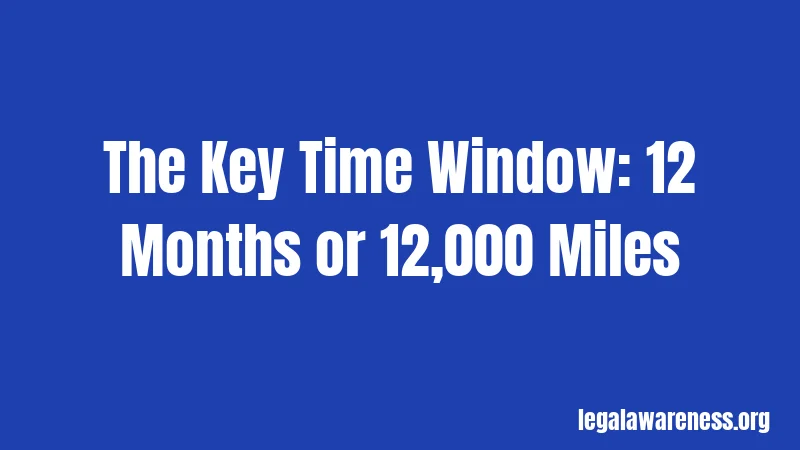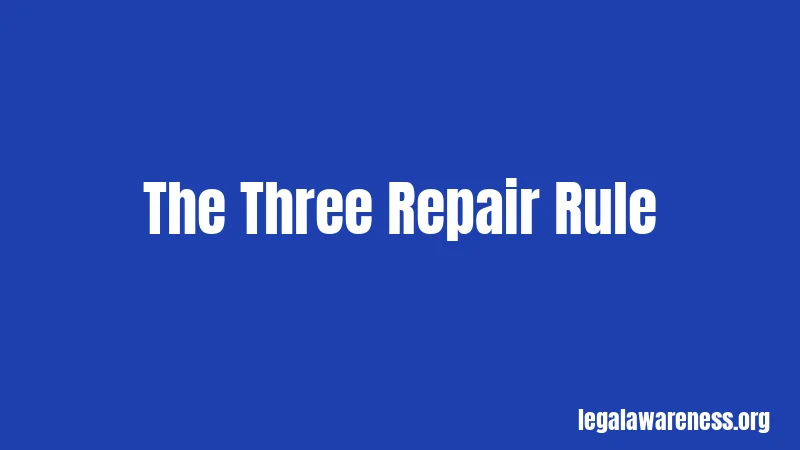Pennsylvania Lemon Laws (2026): Your Complete Protection Guide
You bought a new car. You were excited. Then something goes wrong. It gets fixed, but the problem comes back. Or maybe a different problem pops up. Now you’re wondering: is this a lemon? Can you do something about it?
Here’s the good news. Pennsylvania has a law that protects you. It’s called the Lemon Law. And honestly, it’s more helpful than most people realize. Let’s break down exactly what you need to know.
What Is a Lemon in Pennsylvania?

A “lemon” sounds funny, but it’s serious. A lemon is a new vehicle that doesn’t work right. It has a defect that affects how the car runs, how safe it is, or how much it’s worth.
Not every problem makes your car a lemon though. The defect has to be substantial. That means it’s not just a scratched bumper or a annoying rattle. It’s something that really impacts your ability to use and trust the vehicle.
Think of it like buying a phone. If the screen is cracked, that’s a problem. If the battery dies in five minutes, that’s a real issue. That’s lemon territory.
Who Is Covered Under Pennsylvania’s Lemon Law?
Good news. If you bought or leased a new vehicle in Pennsylvania, you’re likely covered. But here are the details that matter.
Your vehicle must be used for personal, family, or household purposes. So your personal car is covered. Your family car is covered. But a vehicle used for business or commercial work doesn’t qualify.
As of May 18, 2025, motorcycles are now covered too. So motorcycle buyers finally get the same protection as car buyers.
Here’s what’s not covered: motor homes, off-road vehicles, or used cars. The law is specifically for new vehicles only.
The Key Time Window: 12 Months or 12,000 Miles

This is super important. You need to know this one.
You have a protection window. It starts the day you get the vehicle. It ends after 12 months OR after you drive 12,000 miles. Whichever comes first.
So if you buy a car on January 1st, you’re protected until January 1st the next year. But if you drive 12,000 miles before that date, your protection ends. You don’t get to use both numbers. It’s whichever limit you hit first.
Here’s what’s crucial though. You only need to report the problem ONCE during this window. You tell the dealer or manufacturer about the defect. Then the repair attempts can happen after the 12 months or 12,000 miles are up. The law still covers you.
Wait, that’s important. Let me say it again. Report the problem before 12 months or 12,000 miles. The fixes that come later still count.
What Qualifies as a Substantial Defect?
Not every problem means you have a lemon. The defect has to actually matter.
A substantial defect is one that affects the use, safety, or value of your vehicle. A loose button in your car? Probably not substantial. Brakes that don’t work right? That’s absolutely substantial. An engine that won’t start? That’s a serious problem.
Think about it this way. Does this problem make the vehicle unsafe to drive? Does it stop you from using the car normally? Does it make the car worth less money? If yes to any of these, it’s probably substantial.
The law covers defects in any part of the vehicle. The engine, brakes, transmission, electronics, air conditioning, safety features. If it’s broken and it matters, it counts.
The Three Repair Rule

Now here’s where it gets interesting. Pennsylvania law gives manufacturers chances to fix the problem.
The manufacturer gets three attempts to repair the same defect. Three tries. If the problem comes back after the third repair, you have a strong lemon law claim.
Here’s a key point. Even just taking your car to the dealer counts as a repair attempt. You don’t have to have actual repair work done. You bring the car in. The dealer looks at it. That counts. It’s documented.
You don’t have to wait between attempts either. The dealer could try three times in one week if needed. But realistically, most repairs take days or weeks to schedule.
The 30-Day Out-of-Service Rule
There’s another way to qualify as a lemon. You don’t need three failed repairs.
If your car is in the shop for repairs for 30 days or more (total, not consecutive), you might qualify. The 30 days don’t have to happen all at once. You could be in the shop for 10 days, then 8 days, then 15 days. That adds up to 33 days. That counts.
This is huge for people with complicated problems. Maybe the dealer can’t figure out what’s wrong. They keep the car longer. Those days add up. And you’re protected.
Even better? The 30 days must happen during your first 12 months or 12,000 miles. But it doesn’t matter if the problem gets fixed or not. You qualify.
Brand New in 2025: Motorcycle Lemon Law Protection
This is big news. Starting May 18, 2025, motorcycles are finally covered under Pennsylvania’s Lemon Law.
For years, motorcycle riders didn’t have this protection. A rider could buy a new motorcycle with serious problems and have very few options. Now that’s changed.
If you bought a new motorcycle for personal use, you’re protected. The rules are mostly the same as cars. You have one year from delivery (or the warranty period, whichever is shorter) to report a problem. The manufacturer gets reasonable attempts to fix it.
Most motorcycle warranties last one to three years. So your lemon law protection period is typically one year.
If you bought your motorcycle before May 18, 2025, this doesn’t apply to you. But you might still have options under federal warranty laws. Talk to a lawyer about your situation.
What Happens If Your Car Is a Lemon?
So you’ve reported a problem within 12 months or 12,000 miles. The dealer has tried to fix it three times (or more). Or your car has been in the shop for 30+ days. You have a lemon. Now what?
The manufacturer must do something. They can’t just say “sorry” and send you home. You get options.
Option 1: Full Refund
The manufacturer buys the car back from you. They pay you the full purchase price. This includes your down payment, any trade-in allowance, and all the car payments you’ve made. If you financed the car, they pay off the remaining loan balance too. That’s huge.
There’s one catch. There’s a usage offset. You get charged about 10 cents per mile for every mile you drove before reporting the problem. So if you drove 5,000 miles, you’d be charged $500.
But here’s the cap. This charge can’t exceed $1,200. And it can’t be more than 10% of the purchase price. So you’re protected from huge deductions.
Option 2: Replacement Vehicle
The manufacturer gives you a new vehicle. Not the same lemon. A brand new car that’s comparable. Similar equipment. Similar value.
You get to keep your original purchase price. You don’t lose money here. You just trade in the lemon for a fresh start.
Option 3: Cash Settlement
Sometimes manufacturers will negotiate. They might offer you cash and let you keep the car. This is becoming more common. Honestly, it’s worth asking about.
The Process: How to File a Lemon Law Claim
This might sound complicated. It’s actually pretty straightforward. Stay with me here.
Step 1: Document Everything
Every single time you take your car to the dealer, get a copy of the repair receipt. Keep these receipts in a safe place. The receipt should show the date, the problem, the work done, and the mileage.
Write down dates. Note what the problem is. Keep a simple log. “January 15 – took car in for battery issue.” That kind of thing. You’ll need this information later.
Step 2: Report to the Manufacturer
Contact the manufacturer’s zone representative. You’ll find their phone number in your owner’s manual. Tell them about the problem. Document that you called them.
Some people just go to the dealer. That works too. The dealer has to notify the manufacturer anyway. But direct contact with the manufacturer is even better.
Step 3: Allow Repair Attempts
Let the manufacturer try to fix the problem. Take your car in. Get it fixed (or attempt to get it fixed). Record everything. Repeat until you’ve hit three repair attempts or 30 days out of service.
Step 4: Arbitration or Court
Once you qualify, you have options. You can request arbitration. That’s when an independent person looks at the evidence and makes a decision. No courtroom needed. It’s faster.
Or you can file a lawsuit in civil court. This is a bigger step, but it’s your right.
Good news? If you win, the manufacturer pays your lawyer fees. You also get court costs covered. So getting legal help doesn’t cost you anything upfront.
Do You Need a Lemon Law Lawyer?
Honest answer? You don’t absolutely need one. But you probably should get one.
Here’s why. Manufacturers have lawyers too. They know the law inside and out. They know strategies to minimize what they pay. You’re dealing with a big company.
A lemon law attorney knows this law really well. They know how to present your case. They know what evidence matters.
And remember, if you win, the manufacturer pays the attorney fees. So you get professional help for free.
Most lemon law attorneys work on contingency. That means they only get paid if you win. You pay nothing upfront. Nothing if you lose. That’s fair.
Important: What Doesn’t Count as Your Fault
There’s a limit to lemon law protection. If the problem is your fault, you don’t qualify.
If you modified the vehicle (like added custom parts), that doesn’t count. If you neglected maintenance, that doesn’t count. If you abused the car, that doesn’t count.
Basic maintenance is your responsibility. Regular oil changes, tire rotations, that kind of thing. But a manufacturing defect? That’s the company’s fault, not yours.
The Cost of Repairs
Here’s something important. All repairs have to be done at an authorized dealership. And the manufacturer pays for it. Not you.
If the dealer tries to charge you for a warranty repair, that’s wrong. Tell them no. The law says the manufacturer covers repair costs for defects covered by their warranty.
What If Your Car Was Finally Fixed?
Wait, it’s a good question. Let’s say the dealer finally fixed the problem after three attempts. Does the lemon law still apply?
Yes. It doesn’t matter if they eventually fixed it. If it took more than three repairs or if the car was out of service too long, you still qualify. The fact that it works now doesn’t erase what you went through.
Other Legal Options
The Pennsylvania Lemon Law is strong. But it’s not your only option.
If your car doesn’t qualify for lemon law protection, you might still have options. Federal law (the Magnuson-Moss Warranty Act) provides additional protections. You can also pursue breach of warranty claims.
These are slightly different from lemon law claims. They have different requirements. But they can still get you compensation.
Talk to an attorney about your specific situation.
Recent Changes and Updates
Pennsylvania just updated its lemon law. In November 2024, the state added motorcycle protection. That took effect May 18, 2025.
The law is also being refined. There are discussions about farm equipment coverage. The law continues to evolve based on what consumers need.
Stay informed. Check the Attorney General’s website occasionally. Your rights might be expanding.
Time Limits: When You Have to Act
Here’s something critical. You don’t have forever to file a claim.
You need to report the defect within 12 months or 12,000 miles. That’s when your protection window closes.
But here’s good news. Once you report it, you have four years to formally file for lemon law relief. So report the problem early. Then you have time to go through repairs and escalation.
Don’t wait on this. The sooner you report it, the sooner the clock starts.
Important Documents to Keep
Make a folder. Keep everything related to your vehicle issue.
Purchase or lease agreement. All repair receipts and work orders. Photos of problems if you can safely take them. Photos of the repair receipts. Any written communication with the dealer or manufacturer. Your warranty documentation. Records of phone calls and their dates.
Seriously, keep all of this. When you talk to a lawyer, they’ll want to see it. Organization matters.
If You Bought a Repurchased Vehicle
Here’s something to be aware of. The manufacturer has to disclose if a vehicle was previously repurchased under the lemon law.
If you buy a car that was a lemon before, the dealer has to tell you. They have to show you the manufacturer’s written statement. They have to clearly tell you the vehicle was repurchased because of defects.
If the dealer doesn’t tell you, that’s a problem. Talk to a lawyer.
Frequently Asked Questions
Does Pennsylvania lemon law cover used cars? No. It only covers new vehicles. Used cars, certified pre-owned vehicles, and older cars don’t qualify. But you might have other legal options through warranty laws.
What if I bought my car in another state but live in Pennsylvania? If you registered it first in Pennsylvania, you’re covered. The law covers vehicles registered in Pennsylvania, no matter where you originally bought them.
Can I get a lemon law claim even if I haven’t taken it to the dealer three times yet? Yes, if the car has been in the shop for 30+ calendar days total. You also might have other options if the problem is critical (like brake failure). Talk to an attorney.
Who pays for the repairs while my lemon law claim is pending? The manufacturer pays. All warranty-covered repairs are free. Never pay out of pocket for a defect covered by warranty.
What if the manufacturer refuses to repair the car? Document everything. Contact their zone representative directly. Get it in writing that they refused. That strengthens your lemon law claim significantly.
Can I keep the car and get money instead of a refund or replacement? Sometimes. Manufacturers will negotiate cash settlements. There’s nothing in the law against it. Your attorney can negotiate this with them.
What about my monthly payments while the car is in the shop? You still owe them, unfortunately. This is a gray area. Some attorneys have successfully negotiated to have the manufacturer cover payments for extended out-of-service periods. It’s worth asking about.
Can the manufacturer ignore a lemon law claim? No. They’re required to respond. If they ignore you, arbitration or court are your next steps. And you might win easily because they didn’t respond properly.
Final Thoughts
Pennsylvania’s Lemon Law is strong protection. You bought a vehicle expecting it to work. If it doesn’t, you have rights.
Report problems quickly. Document everything. Don’t let a dealer or manufacturer brush you off. And if you need help, talk to a lemon law attorney. It won’t cost you anything.
Your experience should matter. Your money should be protected. That’s what this law is designed to do.
Stay informed. Keep those receipts. And remember: you don’t have to live with a lemon.
References
Pennsylvania Attorney General – Automobile Lemon Law
Pennsylvania Department of Transportation – Lemon Law Fact Sheet
1-800 Lemon Law – Pennsylvania Lemon Law Help
Pennsylvania Consumer Protection Bureau – 1-800-441-2555
73 P.S. § 1951–1963 – Pennsylvania Automobile Lemon Law Statute
Senate Bill 155 – Motorcycle Lemon Law (Effective May 18, 2025)
